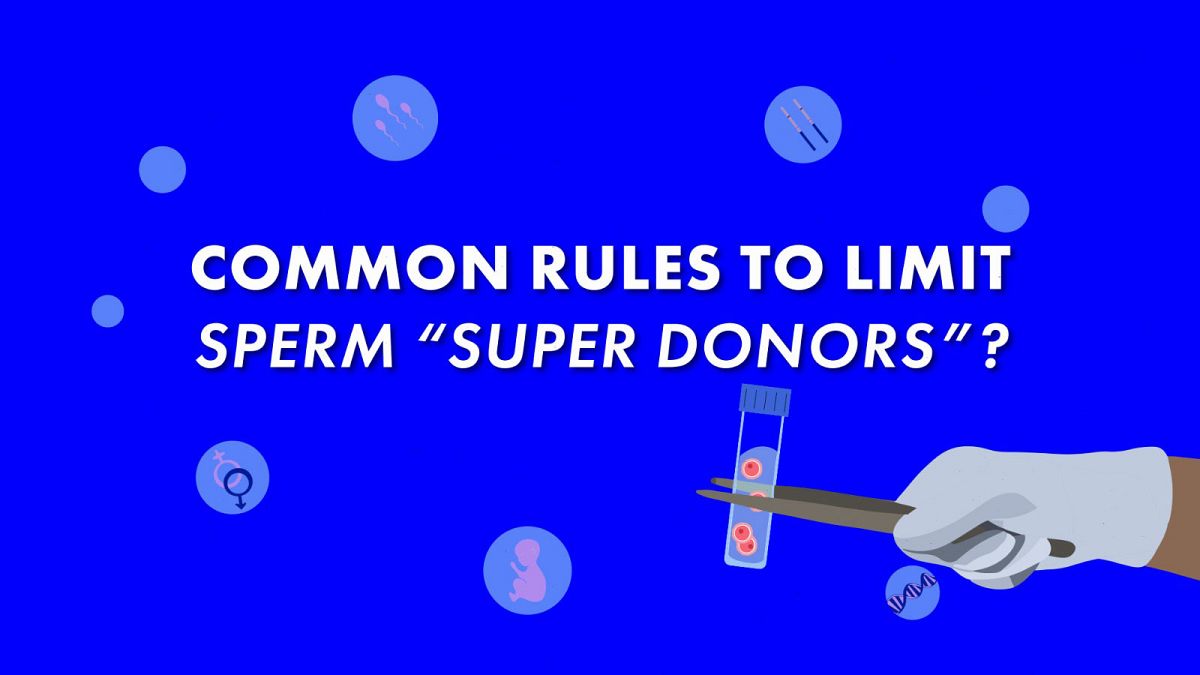

As Europe navigates a complex landscape of policy, travel, and public health challenges, several key developments highlight the ongoing efforts to foster unity and address pressing needs. From calls for cohesive regulation on sperm and egg donation to improving railway safety and addressing vaccination lag, these stories paint a picture of a continent striving for progress and resilience.
In recent years, the number of births conceived through sperm donation has been on a noticeable rise across Europe. However, this increase has brought with it concerns regarding so-called “super donors,” individuals whose genetic material is overrepresented. In response, a number of EU countries are advocating for clearer regulation and international agreements to establish limits on sperm and egg donations. This initiative aims to ensure transparency, diversity, and fairness, protecting the interests of all parties involved while encouraging a balanced and ethical path forward.
Meanwhile, Europe’s summer travel plans face significant disruptions as impending strikes in Spain and Italy loom large. These movements add to the ongoing operational challenges experienced by airlines across the continent, stemming from staffing shortages and increased demand. In light of these developments, the European Union is exploring strategies to ease the burden on travelers and airlines, aiming to create an efficient and reliable transportation experience. Addressing these hurdles requires a collaborative effort across countries and sectors to support a seamless journey for passengers.
On the healthcare front, childhood vaccinations have become increasingly vital in preventing outbreaks of diseases like measles. Unfortunately, recent trends indicate a lag in routine vaccinations, heightening vulnerabilities within young populations. Health officials warn that complacency can be exacerbated by misinformation, emphasizing the importance of education and access to vaccines. This preventive approach speaks to a broader commitment to maintaining public health stability and ensuring well-being.
In a proactive move towards enhancing passenger safety, Italy has implemented its first Earthquake Early Warning System on the Rome–Naples railway line. This groundbreaking system is designed to automatically halt trains upon detecting seismic activity, setting a new standard for railway safety. By prioritizing precaution and swift response, this initiative not only enhances the safety of passengers and infrastructure but also serves as a model for other regions susceptible to natural disasters.
Extending beyond European borders, climate-related decisions are affecting policy and public awareness worldwide. The recent decision by the Trump administration to rescind plans for publishing crucial climate reports on the NASA website has left critical data less accessible, precisely when understanding environmental changes is most needed. This highlights the challenges in harmonizing global efforts to address climate issues and underscores the necessity for consistent, transparent communication.
In summary, Europe stands at a dynamic intersection of policy reform, infrastructural advancement, and health initiatives. By fostering collective approaches and innovative solutions, the continent moves towards a future defined by unity, safety, and well-being for its citizens. Each of these challenges, whether in travel, health, or environmental policy, offers an opportunity to cultivate resilience and shared progress. As these efforts unfold, they showcase the potential for positive change and a commitment to the greater good. Through careful planning and open dialogue, Europe continues to build a foundation for a promising future.
Source: {link}
